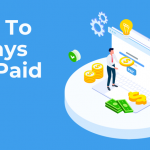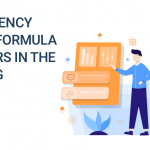What are you selling?
It’s a simple question that does not always have a simple answer. Especially for creative projects.
On paper, you may be selling:
- Graphic design
- Writing
- Web development
- Application development
- Full-scale SaaS development
- Or any number of other things
But when you look beyond the ink on the paper and the item that somebody asked for, you find that it’s none of these things.
After all, a home buyer wants a house, but they pay the contractor to build a building.
What you’re selling is your time and expertise.
When it comes to creative endeavors, buyers often look at the transaction as though they’re just buying the painting or the design or the article, the website, or the application. That isn’t explicitly true – what they’re really paying for is your time and your expertise.
This is important to you because, especially in development, people say, “this product doesn’t work the same as it did five years ago, and now that’s a problem.” Then they want you to fix it for free or at a steep discount because they bought it from you.
However, if you set up your contract to specify that they are buying your time, not a final product, then they need to buy more time if and when something goes wrong.
Then you’re protected.
Plumbers vs. Creatives: What’s the difference?
If you call a plumber about an issue in your home they’re always going to bill you a certain amount of time just to come out and just look at it. It may be $50 or $150, depending on where you are and the nature of the problem.
Either way, they’re going to bill you that just to come and inspect your problem. Then they’re going to tell you how much they would charge to actually fix the issue.
Selling on value
A lot of times, creatives or developers don’t think about it in the same way, and that is to their detriment. But at the end of the day, you’re selling your time and expertise, just like a plumber.
The biggest difference is that a lot of creatives sell on value, not on time. This changes the dynamic of the situation a lot, and needs to be taken into account. However, if you are being called years after a product was launched to fix a problem, your customer still needs to pay for it.
Remember that as you go forward and you grow your businesses: you’ve got to know what you’re selling and the value of your time.





